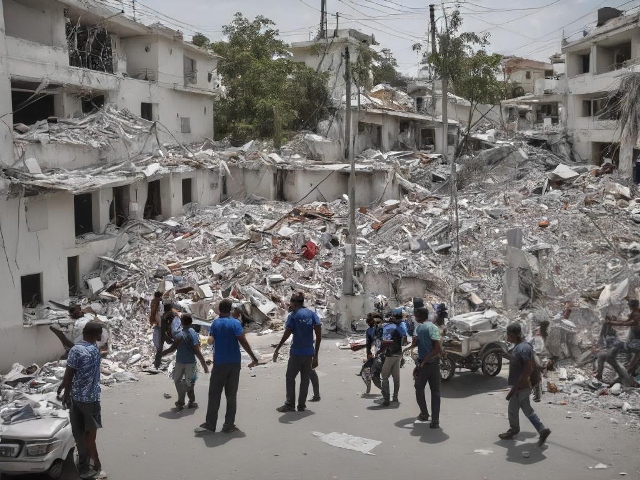UN Experts Express Grave Concern over Humanitarian Crisis in Haiti
More than half a million children in Haiti live in areas controlled by armed groups, placing them at heightened risk of violence and recruitment.

UN experts have highlighted a severe humanitarian crisis in Haiti, exacerbated by escalating gang violence and political instability, which has resulted in a record 578,074 internal displacements in 2024. This includes over 310,000 women and girls and 180,000 children, underscoring Haiti's status as the country with the largest number of displacements globally due to crime-related violence.
Alarming Levels of Violence and Humanitarian Impact
Violence in Port-au-Prince, particularly by armed groups controlling large areas, has reached alarming levels. Clashes between gangs and the Haitian National Police have created an environment of fear, severely restricting freedom of movement and access to basic services. In the first quarter of 2024 alone, 2,500 people, including 82 children, have reportedly been killed or injured in gang-related violence. More than half a million children in Haiti live in areas controlled by armed groups, placing them at heightened risk of violence and recruitment.
Conditions of Internally Displaced Persons (IDPs)
Internally displaced persons in Haiti face dire conditions, with 80% hosted by families and the rest in over 114 sites, including schools and churches, often in gang-controlled or high-risk areas. These sites are overcrowded and lack basic hygiene, sanitation, food, water, shelter, and medical care. The situation increases risks of disease and violence, especially gender-based violence. Unaccompanied children among IDPs are particularly vulnerable to exploitation, abuse, and trafficking by gangs.
Protection Crisis and Human Rights Violations
The protection crisis includes a surge in sexual violence against women and girls in IDP sites, where gangs use rape as a weapon of terror. Weaknesses in the justice system and attacks on justice personnel exacerbate the situation, leaving victims without recourse. Nearly half of Haiti's population faces severe food insecurity, worsened by health system strains from cholera and tuberculosis resurgence amid fuel shortages.
Impact on Education and Infrastructure
The violence has forced the closure of nearly 900 schools, affecting nearly 200,000 children. Attacks on educational facilities disrupt learning and expose children to exploitation by gangs. Port-au-Prince International Airport faces operational limitations, with humanitarian supplies blocked at the port.
Calls for International Action and Humanitarian Aid
UN experts urge the Multinational Security Support (MSS) mission in Haiti to support the National Police under international human rights standards. They call for comprehensive training for the MSS mission, particularly in protecting civilians and preserving humanitarian operations' distinction. The current funding coverage for Haiti's 2024 Humanitarian Response Plan is insufficient, necessitating urgent increases in aid, including food, water, medical supplies, and shelter.
Priorities for Humanitarian Response and Rights Protection
It is crucial to prioritize protecting IDPs in identified and informal sites, enhancing access to emergency and cash assistance, food distribution, counseling, and referrals. Strengthening community-based organizations' protection capacities and ensuring access for humanitarian workers are essential. Efforts to prevent and respond to sexual violence, abuse, and exploitation must be enhanced, focusing on prevention, risk mitigation, response services, and access to justice.
Path Forward: Political Transition and Durable Solutions
Addressing the crisis and protecting human rights are prerequisites for preparing for free elections in Haiti. The international community's support, including women and girls' leadership in decision-making, is critical. Rebuilding security in IDPs' neighborhoods and addressing root causes of displacement are vital for durable solutions like safe return, resettlement, or local integration.
The situation in Haiti demands immediate and sustained international attention and action to alleviate humanitarian suffering, protect human rights, and support long-term stability and development in the country.
- READ MORE ON:
- Haiti
- Multinational Security Support










